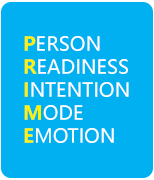 Topic: Puppy Love: What to do when your child has a crush.
Topic: Puppy Love: What to do when your child has a crush. Date: April 6, 2022 (Wednesday), 8:30pm
Speaker: Consultant psychologist, Ms. Lee Li Li
Click the following icons to listen to the full interview:
What is youthful romantic relationship?
Youthful romantic relationship or better known as 'puppy love' refers to an individual, who is under 18 years old form a romantic relationship with others during their childhood. In today's modern era, most often these brief relationship starts to happen in early adolescence as they learn and follow in the footsteps of their peers, which they may not even understand the real meaning of 'love'. Romance comes in the form of crushes, with no to little contact of infatuation. Hence, if adolescence shares that they have 'boyfriend' or 'girlfriend', parents shall not be worry and supress their thoughts immediately. On the contrary, parents should educate them on the term 'boyfriend/girlfriend' and 'love'.
Generally, the romantic development is triggered by puberty and the experiences are unfold in a sequence of stages across early adolescence to emerging adulthood. It is then considered a prominent romantic experiences, once they are emotionally matured after the process of puberty.
The PRIME rules
 It is recommended for parents to educate and discuss about romantic relationships with their children using the PRIME rules. PRIME rule is classified into person, readiness, intention, mode and emotion.
It is recommended for parents to educate and discuss about romantic relationships with their children using the PRIME rules. PRIME rule is classified into person, readiness, intention, mode and emotion. Person: It is important to explore the partner's characteristics and attitudes. For example, both can grow together and motivate each other to become a better person if they share the same values.
Readiness: Guide your child in exploring what kind of relationship is appropriate and suitable through different movie plots such as a happy or sad relationships. Though all children deal with emotions in different ways, they are going to need to feel loved and supported if they encountered bad relationships. Hence, parents should encourage their child to let them know that they have a support system.
Intention: Guide your child to have a clear and right mindset such as finding the purpose of each relationship. For example, many teenagers engage in a romantic relationships to ward off the feelings of loneliness and isolation. It is important for a child to understand the purpose of dating in order to create a sustainable and healthy relationships.
Mode: Romantic relationships can either be the traditional or online relationships.
Emotions: All romantic relationships go through ups and downs. It is important to guide your child to be aware of the different emotions and provide solutions to resolve conflicts in each relationship.
Romantic Relationships vs Sexual Relationships
There are different types of relationships such as romantic and sexual relationships. Many parents thought it is inappropriate to talk about sexual activity among their underage children. In fact, parents needs to understand that they need to connect and communicate with their children, especially about having relationships with others. It is the parents' responsibility to talk about the physical, emotion, and even consequences of romantic and sexual relationships. On the contrary, it will spark even more curiosity in the children if parents avoid discussing or showing sexual contexts to them. For example, if parents and children are watching a movie scene, where it shows the positive/negative outcome of sexual relationships, parents may take this opportunity to educate the children using the PRIME rules.
In addition to the PRIME rules, is it important to keep in mind to evaluate each relationships using the principles of broadness and baseline.
Broad: Every individual needs to keep an open-minded and broad-minded in forming a romantic relationship.
Baseline: Discover the baseline which paced with the competencies of the person and relationship as a whole. For example, keep the partners' age among the same such as teen and teen instead of teen and working adult to avoid complicated situations. There will be a higher risk if there is a gap between both partners.
Tips on how to talk about sex with children?
- Daily unintentional guidance
- Conversation with others
- School/society group counselling/lectures
- Books/movies
Do not afraid to talk about love, sexual, relationships and etc with the children, otherwise they will become rebellious and may feel like they rather keep it secretive. They will not confide in you the next time they encounter such relationships.
At what age should parents talk about sex?
The topic of sex are more likely to be discussed among parents and children are 11 to 18 years old, whereby child slowly enters puberty and there may be some changes in the body. The first sexual characteristics may appear in the development of new organs, so it is the most suitable time to start talking about sexual. However, the degree level of sexual discussions varies between 11 to 18 years old, depending on the maturity of each child.
- At age 11-12, parents may start to introduce the different parts of reproductive system, menstruation, condoms, birth control pills and others.
- At age 13-14, parents use different types of method such as appropriate photos and videos to share about the process of reproduction.
- At age 15-18, parents may talk about sexual intercourse, having babies, how to deal with baby and others.
- Never talk about sexual context at the age of 6, as they may not fully understand the concept of it. Parents are encouraged to educate such as which body part are to be protected.
Once the child understands the concept of love and sexuality, it is less likely that they will engage in romantic or sexual relationships in early stages. However, if they often dream of fantasies or the advantages of relationships, it is more likely that they will commit to having relationship with others. This likelihood happens due to the insufficient resources.
Traditional vs Online Relationships
During the pandemic, many teenagers engage in technology more than ever before; hence, the increased number of online relationships. Individuals who engage in online relationships may encounter different problems such as whether real or fake identity, what is the purpose of the relationships and others. Nonetheless, parents should discuss it using PRIME and evaluate using the principles of broadness and baseline such as screen time limitation and online sexual activity. The risk of having online relationships include sharing nudity or using nudity to demand ransom or physical sexual intercourse.
In conclusion, parents are advised not to avoid talking about youthful romantic relationships with the children, instead be a role model to educate the child and guide them in building healthy relationships with others. Youthful romantic relationships are not trivial, but an integral part of social and relational development that contributes to future intimate relationships in adulthood.
Click the following icons to listen to the full interview:
Note: The above content was transcribed from our April 6th, 2022 Feminine Magazine Facebook Livestream session: 【爸妈不知道的事】我家小孩谈恋爱了!Please kindly contact our office if you would like to learn more or seek consultation. Thank you.





